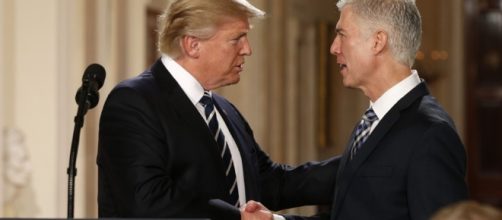The President of the United States, Donald Trump, has nominated Neil Gorsuch, renowned for his conservative views, to fill the vacant seat on the US Supreme court in a move that could alter the ideological genetics of the court for a generation. Gorsuch, a Colorado native, is well respected among Republicans for his firm stance on conventional conservative thinking.
Shaping the key issues
Gorsuch's nomination raised further concern among progressive circles that the Trump administration will pursue extreme conservative approaches to healthcare, LGBT rights, religious equality, abortion and anti-discrimination laws.
Discussing the appointment, Donald Trump said: “I sincerely hope that politicians across the political spectrum can come together for once for the good of our magnificent country'.
As soon as news broke of Gorsuch's appointment, Democrats immediately began to denounce him as 'unacceptable,' 'problematic,' and 'extreme in the most pernicious way'. Senate minority leader, Chuck Schumer, said: 'Senate Democrats will require a robust and exhaustive debate on Judge Gorsuch's ability to be a member of the supreme court'. If Democrats refuse to fully support Judge Gorsuch, Republicans could alter Senate rules to confirm him.
Divisions in the senate
Republicans were praising of Gorsuch's appointment, branding him as a 'highly qualified, universally respected and mainstream' choice to fill the vacant seat of the supreme court,' according to Jeff Flake of Arizona.
Democratic Senator Jeff Merkley from Oregon declared: 'This is a stolen seat being filled by an illegitimate and extreme nominee, and I will do everything in my power to stand up against this assault on the Court'.
Sean Spicer, the White House press secretary, downplayed the potential threat of a political brawl over Trump’s nominee. On Tuesday, Spicer told reporters in typically robust fashion that he believed that the Senate would reach the 60-vote threshold required to confirm supreme court members without Republicans having to alter the rules.

